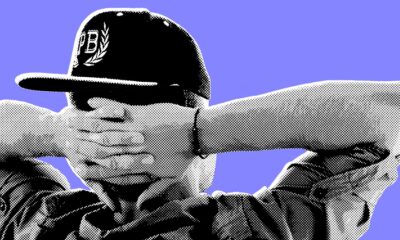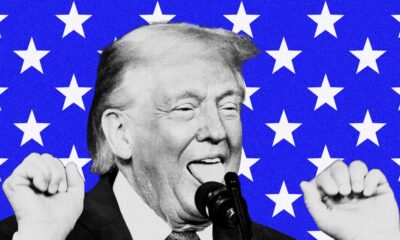Sports
NBA suspends employee who made crude remarks following Charlie Kirk assassination
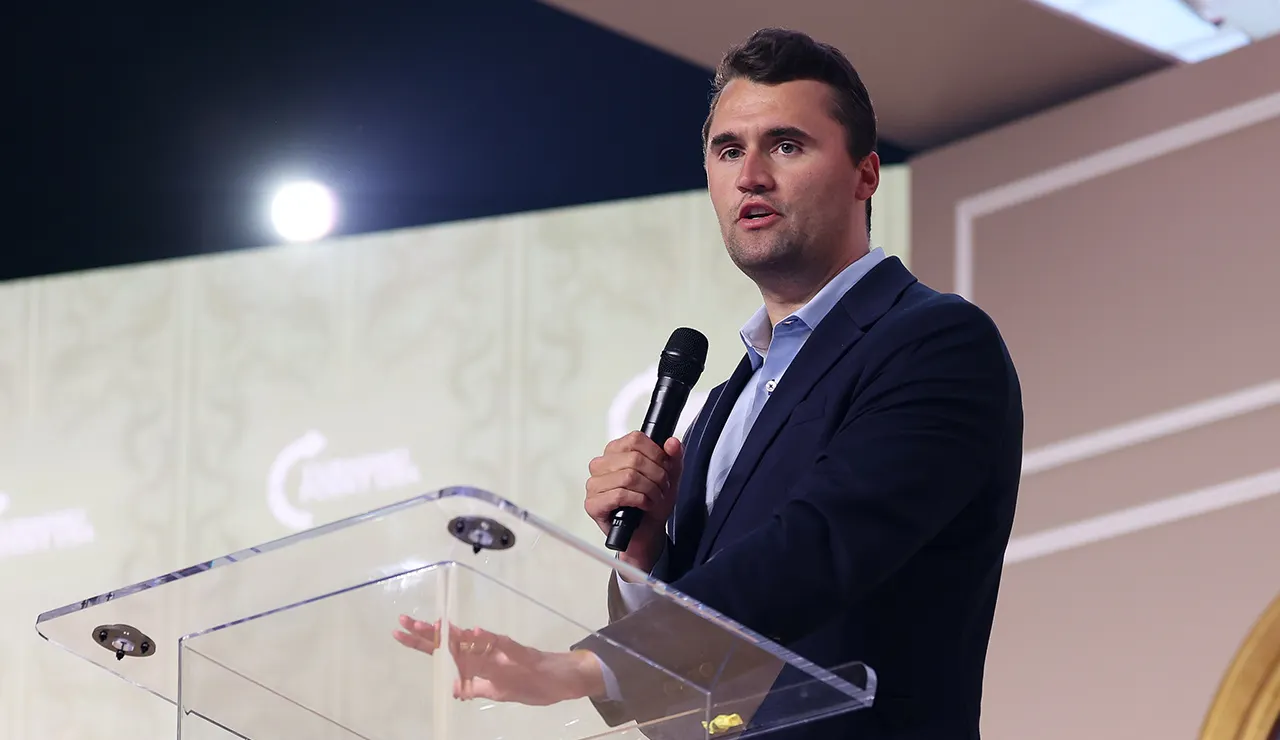
NEWYou can now listen to Fox News articles!
The NBA has suspended an employee without pay for two weeks after he appeared to celebrate the assassination of Charlie Kirk.
In an email to Fox News Digital on Wednesday, a spokesperson for the association confirmed that the employee had “violated multiple NBA policies.”
According to OutKick, which first reported the incident, the former employee called Kirk a “terrible person” and a “s—hole” in an Instagram story.
CLICK HERE FOR MORE SPORTS COVERAGE ON FOXNEWS.COM
Charlie Kirk speaks on-stage during the Turning Point USA Young Women’s Leadership Summit at the Gaylord Texan Resort and Convention Center on June 14, 2025, in Grapevine, Texas. (Sam Hodde for The Washington Post via Getty Images)
In a post the employee shared that asked what Kirk’s “legacy” was, the employee wrote that he did not have one.
“Did absolutely nothing healthy for the world except spew dangerous rhetoric… There is no legacy,” the post read.
“Oh I also forgot to include ‘thoughts and prayers.’ LMAO,” another post read.
The NBA told OutKick on Oct. 6 that it was “looking into” the matter but did not provide another update until announcing the suspension Wednesday, after multiple requests for comment from Fox News Digital and OutKick.
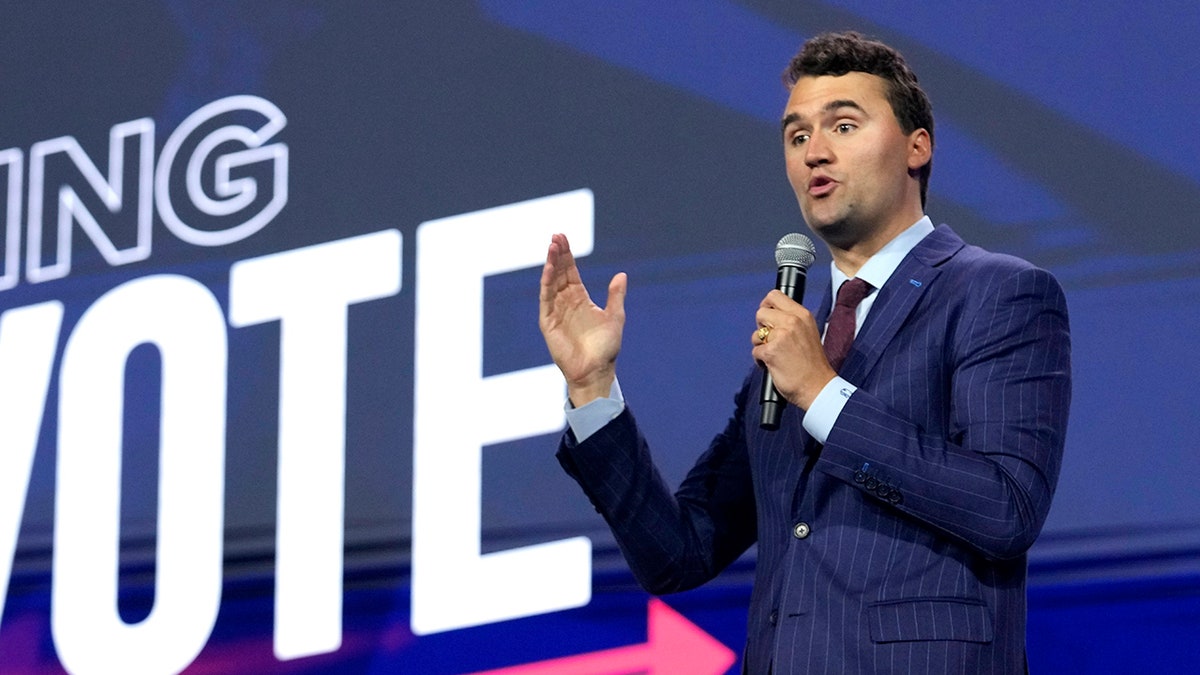
Charlie Kirk, founder of Turning Point USA speaks during the Turning Point Action conference, July 15, 2023, in West Palm Beach, Florida. (Lynne Sladky/AP Photo)
MARK TEIXEIRA SAYS ‘UNREASONABLE’ DEMOCRATS ARE HOLDING AMERICANS ‘HOSTAGE’ WITH GOVERNMENT SHUTDOWN
It is unclear when the suspension was handed down or what policies were broken. The NBA has not responded to an email from Fox News Digital about those details.
Kirk, who would have turned 32 on Tuesday, was assassinated at Utah Valley University while debating college students. He was shot while being asked about gun violence.
President Donald Trump awarded Kirk with a posthumous Presidential Medal of Freedom Tuesday in a ceremony that Kirk’s widow, Erika, attended.
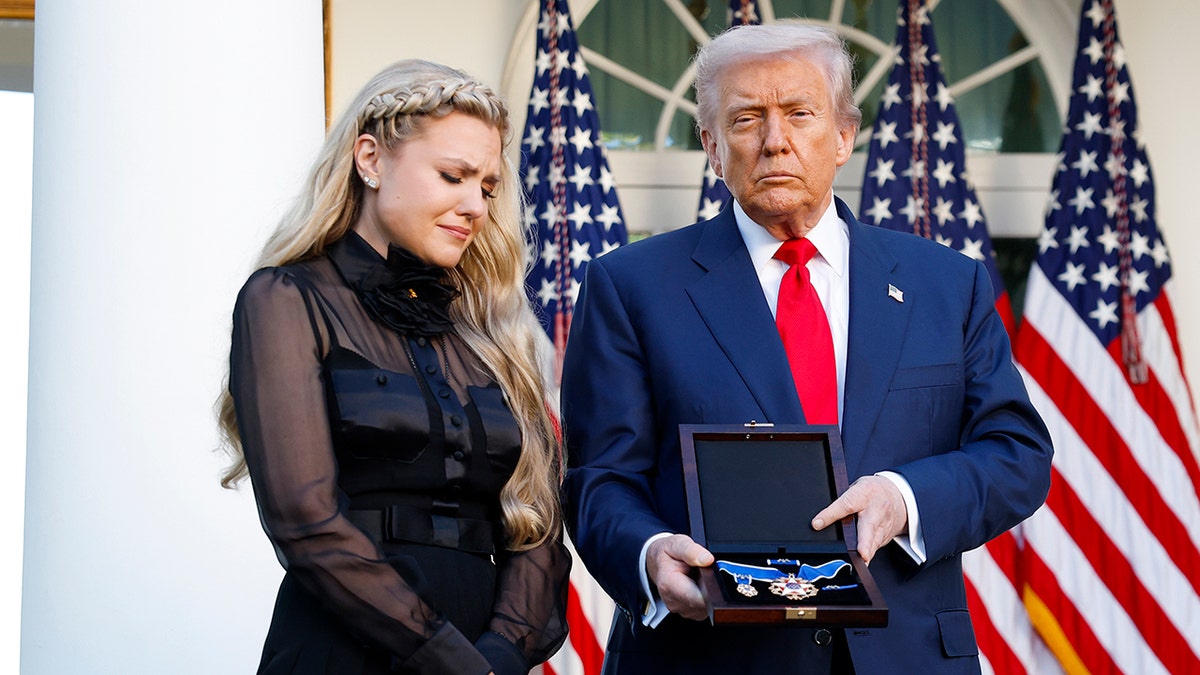
U.S. President Donald Trump posthumously awards the Presidential Medal of Freedom to late conservative activist Charlie Kirk as he presents the Medal to his wife Erika Kirk (L) during a ceremony in the Rose Garden of the White House on Oct. 14, 2025, in Washington, D.C. (Kevin Dietsch/Getty Images)
CLICK HERE TO GET THE FOX NEWS APP
Kirk’s “Turning Point USA” announced earlier this month that it would host its own halftime show for the Super Bowl in San Francisco, shortly after the NFL announced that Bad Bunny would perform at Levi’s Stadium.
Follow Fox News Digital’s sports coverage on X, and subscribe to the Fox News Sports Huddle newsletter.
Sports
More than 500 million request of World Cup tickets, says FIFA – SUCH TV

Football’s global governing body FIFA said Wednesday it had received more than 500 million requests for tickets to this year’s World Cup despite rumbling controversy over sky-high prices to attend the event.
FIFA said in a statement it had received applications from fans in all of its 211 member nations and territories for the tournament staged in the United States, Canada and Mexico.
The window for submitting requests to be entered in a lottery which will allocate tickets closed on Tuesday. FIFA said fans would be notified of whether their requests had been successful “no earlier than 5 February.”
Outside of the tournament’s host nations, FIFA said the heaviest demand came from fans in Germany, England, Brazil, Spain, Portugal, Argentina and Colombia.
The most requested ticket was Colombia’s clash with Portugal in Miami on June 27, followed by Mexico’s game against South Korea in Guadalajara on June 18, and the World Cup final in New Jersey on July 19.
“Half a billion ticket requests in just over a month is more than demand – it’s a global statement,” FIFA President Gianni Infantino said. “I would like to thank and congratulate football fans everywhere for this extraordinary response.”
“Knowing how much this tournament means to people around the world, our only regret is that we cannot welcome every fan inside the stadiums.”
FIFA has faced sharp criticism over its ticket pricing strategy for the 48-team tournament, with fan groups branding the cost as “extortionate” and “astronomical.”
Football Supporters Europe (FSE) said ticket prices were almost five times higher than at the 2022 tournament in Qatar.
Those criticisms prompted FIFA to introduce a new category of cut-price tickets in December set at 60 US dollars (51 euros) each.
Sports
Sources: Harbaugh, Giants working to finalize deal
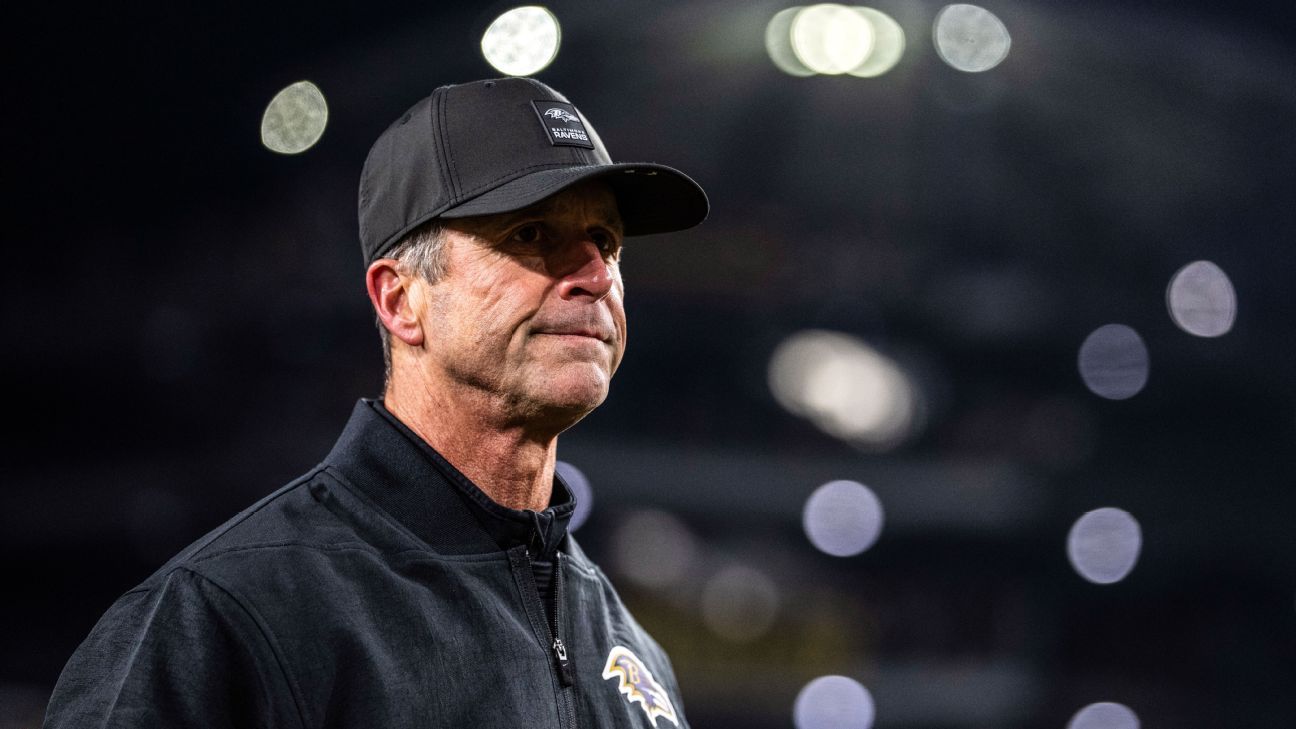
EAST RUTHERFORD, N.J. — John Harbaugh and the New York Giants are working to finalize an agreement to make him their next head coach, and barring a setback, a deal is expected, sources told ESPN’s Adam Schefter on Wednesday night.
The deal is not final and contract numbers still are being negotiated, with one source telling Schefter: “There still is a lot to work through.”
But barring any setbacks, Harbaugh is ready to accept the Giants’ deal and the team is expected to hire him as soon as possible, sources said.
Sports
NCAA asks CFTC to suspend prediction markets
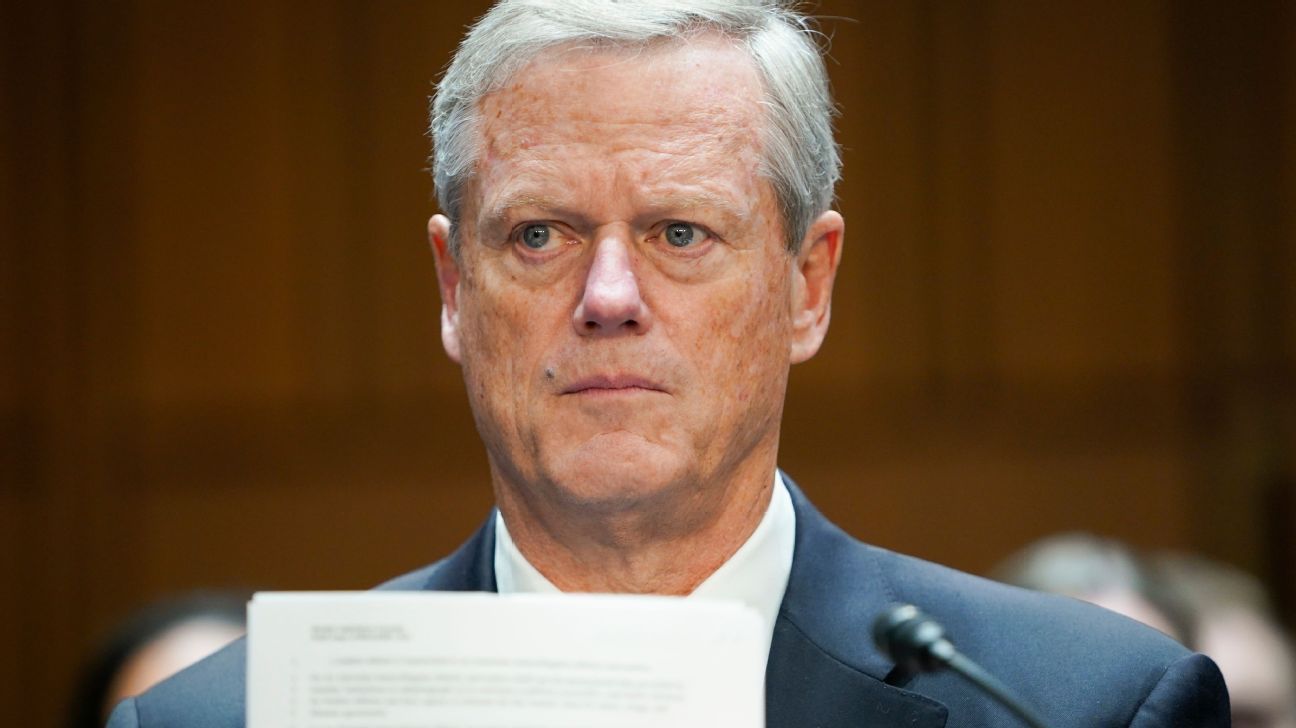
The NCAA asked a federal regulatory body Wednesday to stop prediction markets from offering trades on college sports until more safeguards are in place.
In a letter addressed to the chairman of the Commodity Futures Trading Commission, the federal agency that regulates prediction markets, NCAA president Charlie Baker said the growth of prediction markets poses a threat to the well-being of student-athletes as well as the integrity of competition.
“I implore you to suspend collegiate sport prediction markets until a more robust system with appropriate safeguards is in place,” Baker wrote.
Baker identified several areas where he believes prediction markets need additional safeguards: age restrictions, advertising restrictions, robust integrity monitoring, the involvement of national governing bodies such as the NCAA, restrictions on prop bets, harm reduction resources and anti-harassment measures.
Kalshi, a leading prediction market company, uses IC360, a firm that monitors the betting market for irregularities and works with sports leagues, including the NCAA. Baker acknowledged that some prediction markets monitor for integrity concerns but said “heightened levels of review that don’t exist in many prediction markets” are needed, such as tracing the geolocation of bettors. He also said prediction market operators are not required to report integrity concerns to other operators through an intermediary — a requirement for sportsbooks in most states.
He added that the NCAA is willing to work with the CFTC to develop these protections, which exist for legal sportsbooks.
ESPN has reached out to the CFTC and the Coalition for Prediction Markets, which represents many of the largest operators, for comment.
Baker also discussed the request in a speech Wednesday at the 2026 NCAA Convention.
“So-called prediction markets are offering what anyone can see is unregulated betting on college games,” he said. “We need federal regulators to stabilize this market.”
In his speech, Baker referenced the steps Kalshi had taken to offer markets on the transfer portal as an example of why the NCAA needs federal intervention. In December, Kalshi notified the CFTC that it was self-certifying markets on whether college athletes would enter the transfer portal. Though Kalshi said it has no immediate plans to begin offering trading on the portal, the decision drew sharp criticism from the NCAA.
Prediction markets, which allow users to trade on the yes/no outcome of events, including sports, have increased in popularity over the past year. While traditional sportsbooks operate in 39 states and the District of Columbia, where the betting age is usually 21, prediction markets are available in all 50 states to users 18 and older.
Oversight of prediction markets is a hotly contested legal issue. State gambling regulators, which oversee traditional sportsbooks, are locked in legal battles in multiple states with leading prediction market companies.
Those companies say they are not sportsbooks because users are not going up against the house but instead trading contracts with other users on the opposite side of the proposition. While bookmakers charge a vig, or commission, on losing wagers, prediction markets make money from a transaction fee, similar to a broker, and have no stake in the result.
Major sports leagues have so far been split on the question of prediction markets. The NFL has expressed its concern about the industry’s rise to Congress, while the NHL and UFC have inked deals with Kalshi and prediction market company Polymarket.
-

 Entertainment1 week ago
Entertainment1 week agoDoes new US food pyramid put too much steak on your plate?
-

 Politics1 week ago
Politics1 week agoUK says provided assistance in US-led tanker seizure
-

 Entertainment1 week ago
Entertainment1 week agoWhy did Nick Reiner’s lawyer Alan Jackson withdraw from case?
-

 Business1 week ago
Business1 week agoTrump moves to ban home purchases by institutional investors
-

 Sports4 days ago
Sports4 days agoClock is ticking for Frank at Spurs, with dwindling evidence he deserves extra time
-

 Sports1 week ago
Sports1 week agoPGA of America CEO steps down after one year to take care of mother and mother-in-law
-

 Business1 week ago
Business1 week agoBulls dominate as KSE-100 breaks past 186,000 mark – SUCH TV
-

 Business1 week ago
Business1 week agoGold prices declined in the local market – SUCH TV


